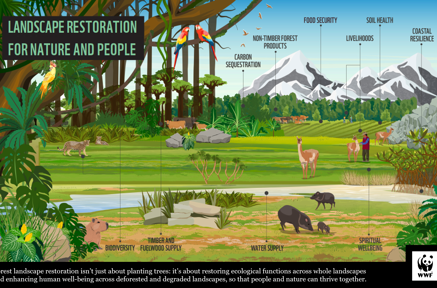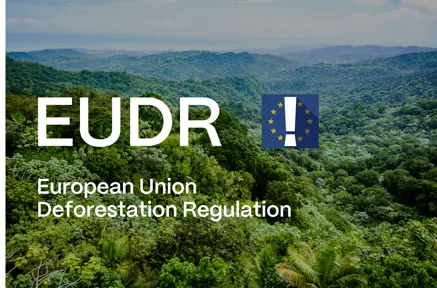The future of packaging in Europe

The growing challenge of packaging waste in Europe
In 2021, the EU generated a new record level of packaging waste: 84 million tonnes.[1] It is an issue that increases greenhouse gas emissions and negatively affects our natural environment and our communities. But a solution is emerging: the circular economy, whereby waste is turned into a valuable resource, and is used again to replace virgin fossil materials and lower the pressure on finite resources. With packaging waste at a record high, there is an urgency to tackle this issue.
How is Europe seeking to solve its waste problem?
The European Commission, the executive arm of the EU, has set ambitious targets to reach climate neutrality by 2050 and has published a Circular Economy Action Plan.
To support these, and to set policy measures and targets aimed at reducing packaging waste, the European Union has been developing the Packaging and Packaging Waste Regulation (PPWR). It aims to:
- Reduce packaging waste
- Boost high quality recycling
- Reduce the need for primary resources
The expectation is that the PPWR will become binding for EU countries later in 2024 – so how are we at SIG playing our part?
How SIG already meets the PPWR’s goals
SIG is on a sustainability journey from good to great. We are confident that SIG meets the requirements of the PPWR. In some areas we are even surpassing the targets mandated in the coming regulation:
Preventing waste and boosting recycling
Alongside our industry, we are committed to reaching a collection rate of 90% for used cartons, and a recycling rate of 70% across Europe by 2030. In addition, all of SIG’s cartons are designed to be fully recyclable and we are already investing in the development of high-quality recycling plants. With policymakers, communities, cities and regions, we are collaborating to improve and build the necessary collection and recycling infrastructures at scale, across Europe. For instance, alongside two industry partners, we are a major investor in the Palurec facility in Germany which is designed to process over 18,000 tons of PolyAl every year, turning these into new, marketable raw materials.
Creating a circular economy for resources
Across SIG’s offering, we are constantly growing the amount of our cartons made with no aluminum layer and provide the options of using either renewable or recycled polymers. This is reducing the use of virgin fossil-based materials and increasingly keeping materials in circulation for use. In addition, all our beverage cartons - with and without an aluminum layer - are recycled at scale in Europe, turning them back into new materials.
Going further: SIG Terra
SIG Terra is the next big leap in our journey to not only comply with the PPWR but to setting a standard for our industry. For example, we reached the milestone of 3bn aluminum layer-free aseptic cartons sold or our SIG Terra Alu-free + Forest-based polymers packaging material is a low carbon solution, linked to 100% forest-based renewable materials. SIG Terra is our portfolio of most sustainable innovations, and key in our support for the EU's Circular Economy targets.
Innovation is part of SIG’s history; the PPWR is an important milestone, but we need to continue to change how the EU packages food and beverages to transition to a circular economy.
Our manifesto for the future of packaging in Europe
At SIG, we believe the future of packaging is regenerative. That means packaging entirely sourced from renewable materials, helps replenish biodiversity, and is recycled into new material.
To shape this future in Europe and deliver on the ambitions of the EU’s Green Deal and Circular Economy Plan, we have three priorities:
- Our planet
We stand for carton packaging solutions that are responsibly sourced, made from renewable materials, and designed with circular principles. Packaging that protects biodiversity and replenishes nature. Consumers should not have to worry about where packaging comes from and what happens to packaging after they have used it. It should be responsible from source and easy to collect and recycle, and not be polluting our environment after use.
- Our climate
We want to scale low-carbon food and drink packaging solutions to eliminate large amounts of greenhouse gas emissions. We believe packaging should be light-weight and space-efficient to drive down the hidden carbon cost of transporting and storing food and beverages.
- Our food systems
We want to play a role in building a regenerative food system. We will continue to improve food availability, safety, and nutrition, as well as minimize food loss and waste in the EU by providing solutions for the long-term storage of highly nutritious food.
Our focus moving forward is to:
- Help increase European forests’ climate resilience and capacity for storing carbon.
- Eliminate the use of virgin fossil-based materials and maximize the focus on the use of renewables in food packaging.
- Minimize food loss and waste in our supply chains in Europe.
- Remove more carbon from the atmosphere than is emitted during a carton’s life cycle.
- Help ensure beverage cartons are collected and recycled in an easy and simple way in the EU.
We believe the path to realizing these priorities is within reach and requires collaboration, and we look forward to working closely with the EU and stakeholders across Europe.
The future of food packaging is regenerative, join us on this journey.
3 FSCTM trademark licence code: FSCTM C020428

Beyond tree planting

How conserving the jaguar king can protect its forest kingdom

